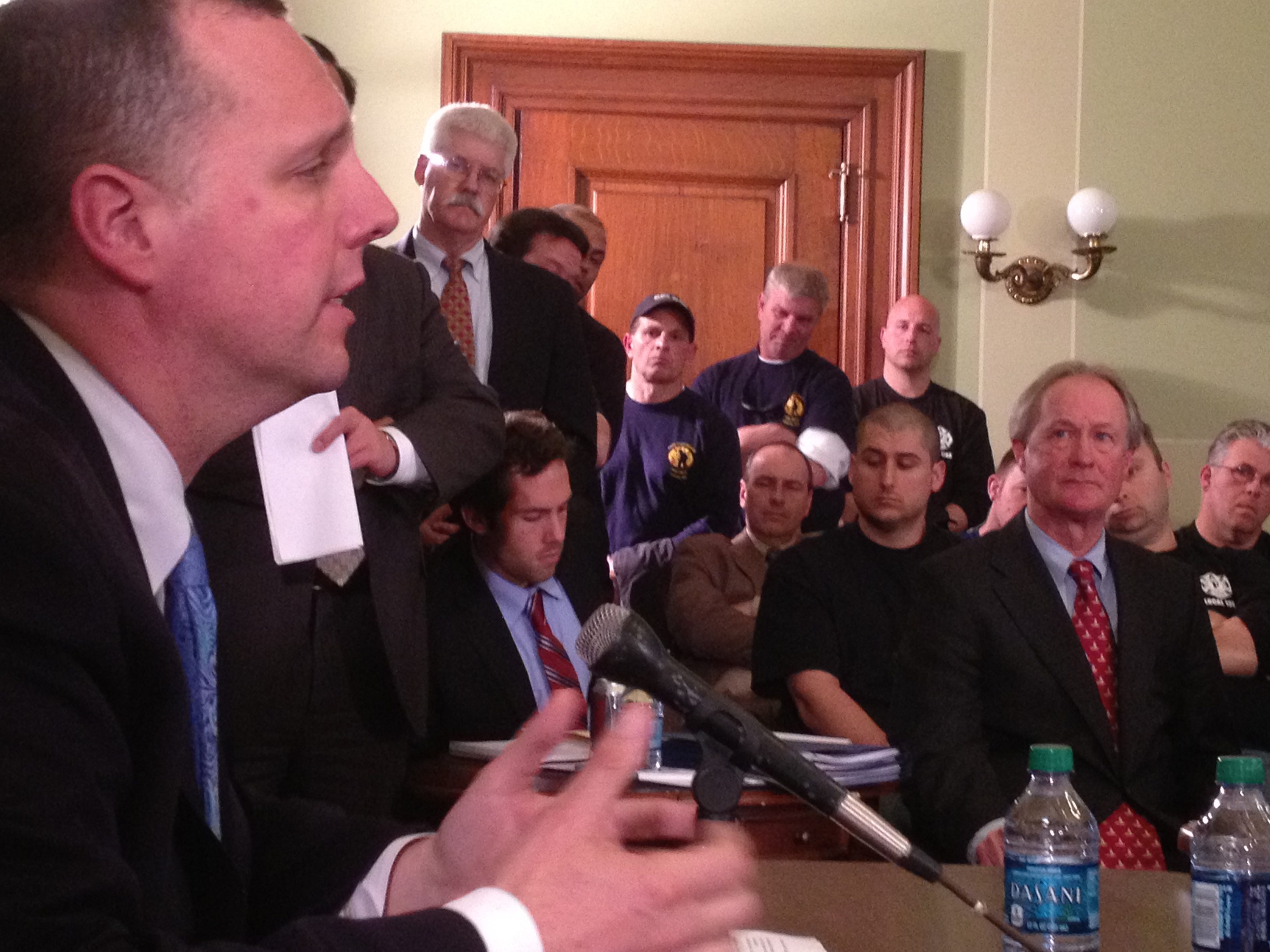
Pawtucket and Woonsocket school districts are appealing a joint lawsuit to the state supreme court which argues that “the State’s 2010 funding formula leaves a severe funding gap.”
The suit contends that because Rhode Island for years operated with a state education funding formula, that it is now implementing the recently-enacted formula too slowly and to the detriment of students and education in these two poor urban school districts.
“There is not enough money for children to take their own textbook home, and the textbooks in question are decades old,” according to the brief. “Children come to school with issues they are dealing with at home, but the schools cannot afford to have enough school psychologists, guidance counselors or other support resources to help children be ready to learn.”
Jason Becker, a former RIDE analyst who helped craft the new formula, says Pawtucket and Woonsocket have themselves, not the state, to blame if students are not receiving an adequate education. On Twitter this morning, he said a Carulo Action, a proceedure in which a school committee can appeal to the state for more education funding from its corresponding town/city council.
The filing lays out in very stark terms the achievement gap so prevalent in Rhode Island public education. You can read the entire filing here. But the introduction gives a great sense of the social implications that the lawsuit is trying address:
Imagine it is a Spring morning in 1996. Two mothers with healthy newborn baby girls rest in adjacent rooms at Womens and Infants Hospital. Mother A and Baby A are part of a middle-class family in Narragansett. Mother B and Baby B are from a Pawtucket family that lives in poverty and does not speak English. In the hospital, Baby A and Baby B receive the same, high quality medical care, and each has the same prospect of a healthy life.
Once the babies leave the hospital, however, their future prospects will diverge sharply. Baby A will receive the best public education money can buy, in a program that spends more $15,000 per child of State and local funds each year, $2,000 above the State average. contrast, Baby B, who has greater needs due to her poverty and lack of spoken English at home, will attend overextended programs in decaying and demoralizing facilities, in a learning environment continually compromised by inadequate resources of less than $11,000 of combined State and local funds ($2,000 below the State average) even while Pawtucket’s tax rate for public schools is higher than Narragansett’s.
Today (in the summer of 2013) Girl A is 17 years old and probably looking forward to her senior year at Narragansett High School, where she will earn a diploma and go on to college. In contrast, if Girl B has not yet dropped out of school, the odds are she will not receive a diploma, even if she passes all of her high school courses. Girl B will face these added risks because of the introduction of “high stakes testing,” which the great majority of Pawtucket 11 grade students failed this year. In many ways, each girl’s future was determined at the time she left the hospital in 1996. To add to the tragedy, the two girls’ diverging futures would have been exactly reversed had the hospital mistakenly sent Baby A home with Mother B, and vice versa.
This imagined story reflects an underlying reality in Rhode Island today. Every day, the children with the greatest needs in Pawtucket and Woonsocket strive to get the best education they can under desperate conditions. The privations that ravage the Pawtucket and Woonsocket public schools are far from inevitable; in fact, many Rhode Island public schools offer a vastly superior learning environment. Wealthier communities offer superior public education because education is a basic right, and because they have sufficient local resources to guarantee that right.
In contrast, Woonsocket and Pawtucket are two of the State’s four poorest communities, and the State’s funding, even under the much-celebrated 2010 school aid funding formula, does not come close to providing what their children need.
In this way, Rhode Island’s public education today fails to meet our most deeply held values, both as Americans and as Rhode Islanders.


Deprecated: Function get_magic_quotes_gpc() is deprecated in /hermes/bosnacweb08/bosnacweb08bf/b1577/ipg.rifuturecom/RIFutureNew/wp-includes/formatting.php on line 4387
Deprecated: Function get_magic_quotes_gpc() is deprecated in /hermes/bosnacweb08/bosnacweb08bf/b1577/ipg.rifuturecom/RIFutureNew/wp-includes/formatting.php on line 4387
Deprecated: Function get_magic_quotes_gpc() is deprecated in /hermes/bosnacweb08/bosnacweb08bf/b1577/ipg.rifuturecom/RIFutureNew/wp-includes/formatting.php on line 4387